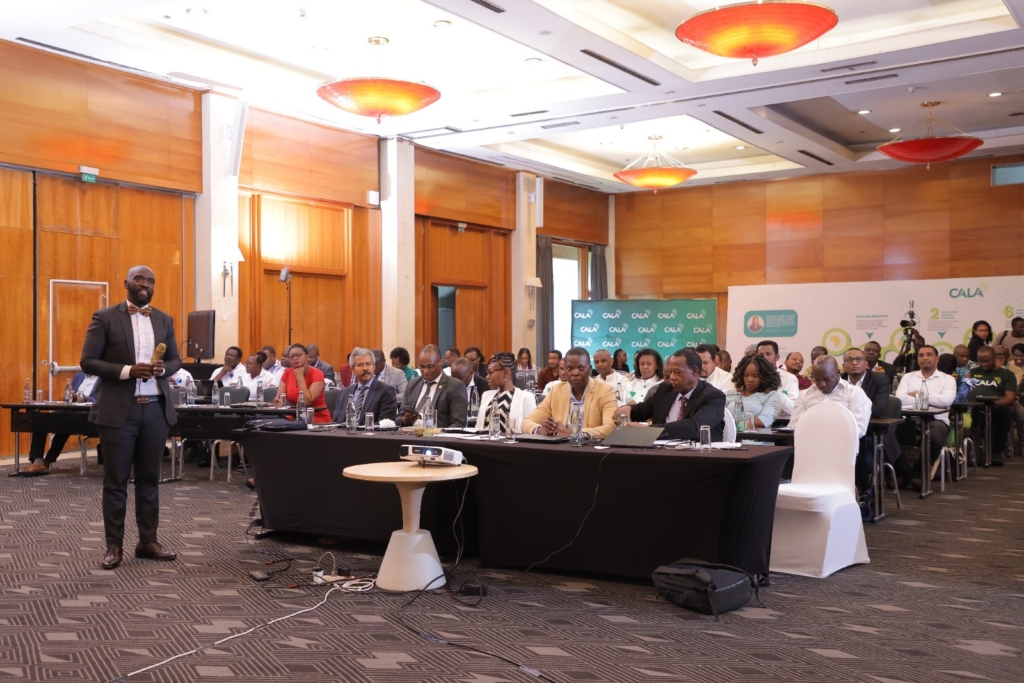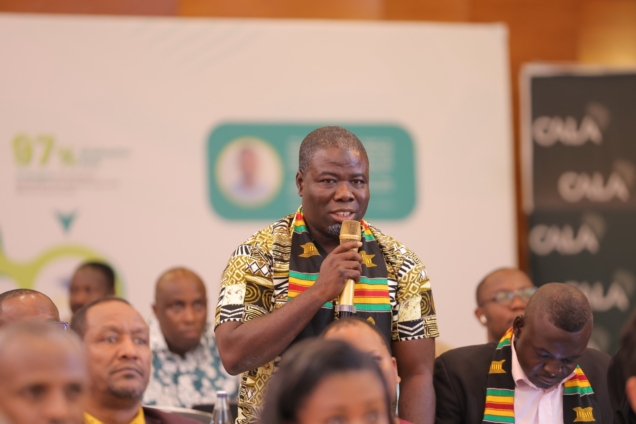AGRA President Dr Agnes Kalibata says action is needed from agricultural sector stakeholders to tackle post-harvest farm losses on the African continent.
Speaking at the second graduation of 78 Food Systems Leaders from AGRA’s Center for African Leaders in Agriculture (CALA) Programme in Addis Ababa, Ethiopia, she underscored the critical importance of addressing post-harvest losses in agriculture.
She emphasized the need for innovative solutions and strategic interventions to minimise post-harvest losses, a challenge that continues to impede the agricultural sector's growth and resilience across the African continent.
“Fifty per cent of CALA graduates are looking to solve post-harvest losses. Some of the food that we lose in the farms, if we save them, we won’t be saying that Africa has 300 million hungry people.
"If we work to solve post-harvest losses by 40%, we will be saving a lot on the production side and shift the narrative,” Dr. Kalibata, said.
CALA is an AGRA-led initiative and is delivered in collaboration with the African Management Institute (AMI) and USAID’s Policy LINK.

The 78 leaders drawn from the public, private sector, and civil society completed a 16-month collaborative, hands-on, and tailored experience for senior and rising leaders in Africa’s agriculture sector.
They spent the duration of the program honing their leadership skills and acquiring knowledge to tackle pressing issues facing the agricultural landscape.
The CALA program, designed to empower and nurture the next generation of agricultural leaders, focuses on equipping participants with the skills and insights needed to drive positive change in the sector.
It is designed for leaders spearheading and directly implementing country-level agriculture initiatives and equips participants with practical leadership skills for effective implementation of national flagship programs.
Berekum East Municipal Agriculture Director Salley Alhassan, who is also a member of Project Agriexcellence Ghana, was one of the graduates.
Selected from over 1,000 applicants, the graduates represent the continent’s most dynamic leaders in agriculture, with 45% of the leaders drawn from government agencies across the eight countries, 26% from the private sector, and 29% from civil society.
“As leaders in your respective organisations and fields, you have the opportunity to play a pivotal role in aligning your country’s national priorities to the regional priorities to ensure that the transformation of food systems is grounded in the realities of local communities,” said Prof. Jean Jacques Muhinda, Regional Head for East and Southern Africa, AGRA.
The graduating delegates now join the inaugural cohort of 80 delegates in the prestigious CALA alumni community, continuing their learning and collaboration.
Latest Stories
-
MTN Ghana honours community champions at 2025 Heroes of Change Awards
7 minutes -
Ensuring sanity in the professional practice space – supporting our regulatory councils
1 hour -
UK backs Morocco’s autonomy plan for Sahara as credible basis for resolution, pledges support at all levels
2 hours -
Pyramids beat Sundowns to win first-ever CAF Champions League title
2 hours -
Pyramids FC win CAF Champions League following 2nd leg victory over Sundowns
3 hours -
Pyramids FC clinch first CAF Champions League title with victory over Mamelodi Sundowns
3 hours -
Nations FC cite “poor officiating” and “security lapses” as reasons for abandoning Basake Holy Stars match
3 hours -
Breaking the cycle: School girls in Techiman unite against child marriage, demand menstrual dignity
4 hours -
2024/25 GPL: Hearts dispatch relegated Legon Cities
4 hours -
2024/25 GPL: Samartex edge Aduana Stars 2-1 in final home game
4 hours -
GPL 2024/25: Karela United thump Accra Lions at home
5 hours -
Prof. Kwaku Asare shoots down Fiscal Council proposals
5 hours -
2024/2025 GPL: Holy Stars, Nations FC game abandoned after violence
5 hours -
GPL 2024/25: Heart of Lions keep slim title hopes alive with win over Bechem
5 hours -
2024/25 GPL: GoldStars beat Berekum Chelsea to enhance title hopes
5 hours

